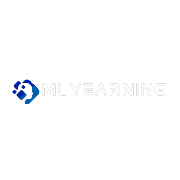The AI art conundrum: Who Owns Ai Generated content be it images or song?
From generative AI writing poetry and creating images, to robots painting pictures, AI art has been making waves in the digital space, and has also sparked off debates.
Although art generated by AI has won accolades and prizes, much to the displeasure of artists, some organisations such as Getty images have gone ahead and banned images generated by artificial intelligence.
The debate is currently all about the ethics of machine learning being used to translate prompts into artwork, while replacing the creativity of an artist.

As artists like other professionals are concerned about how AI can limit their opportunities to earn a living, copyrights around AI art need to be discussed if it is to be monetised.
Who Owns Ai Generated Art?
Artificial Intelligence (AI) created artwork is not eligible for copyright protection. The question of who owns art created by AI is a complex and controversial issue. Even though AI creates the artwork, it’s the human developers who designed and tutored the AI algorithms, making them the underlying force. You can’t use ai-generated art like commercially. Read our article about Can you use Midjourney Commercially?
When it comes to artistic works – whether videos, images, scripts, music, or any other format that AI can manipulate – the (U.S.) law is quite clear. According to copyright legislation, copyrights can only be awarded to human creators. Consequently, if a piece of work is generated by AI, it’s not possible for anyone to assert ownership or secure its copyright.
What Is Copyright? Does It Apply to Non-Human Creations?
Now when someone paints a picture, clicks a photograph or composes a tune and puts it in the public domain, it’s very easy for someone to pick it up and create a copy. That is why documentation is required to protect their right over anyone reproducing or distributing their content.
This doesn’t mean no one can use a tune to remix it or others can’t use a certain picture on the internet, but copyright ensures that the original creators get paid for the usage.
These payments for the copyright holder are called royalties, which are set at 10% or less of the total revenue from the sale of an artwork. It can also be a one time payment made to the copyright holder, after which the one who has bought the rights can use or modify the art as they wish to.
Now copyright laws apply only to works of human authorship, which is the stand of courts across the US. Which means that non-humans, be it birds or animals, can’t get a copyright on their images, and this also leaves us with lack of clarity on AI’s rights to its art.
An Example of AI Copyright Rejection
For instance in 2018, an American court dismissed the plea that a monkey whose accidental selfie went viral, should get copyrights to his picture. Although the court agreed that the monkey’s plea had a standing under Article III, as a non-human, it didn’t have any standing under the copyright act.
But currently the debate has shifted from a monkey’s selfie to the artworks created by AI, and the US Copyright Office has held that AI can’t copyright art. It rejected a request from Steven Thaler to copyright an image on behalf of an algorithm which had created it.
Is AI Work Non-Copyrightable?
Non-human creations aren’t covered by copyright laws, and the US Copyright Office has already made its stance clear by rejecting a request to copyright AI art. Hence its safe to say that AI art cannot be copyrighted as of now.
The Issues With AI-Generated Work
There are major issues with an AI simply generating images or content which artists painstakingly create over a period of time.
But the main contention is how the works of art or inputs used for training an AI model to generate a new artwork, is collated from the labour of other artists, who aren’t compensated for it.
So the artwork that an algorithm creates may be entirely original, but its a collection of bits and pieces taken from different copyrighted creations. But in that case, isn’t all art inspired from art that had been created by other artists?
The Ethics of AI
All of the above makes us question if art generated by AI can be considered ethical. This is something that can only be decided depending on whether one considers AI as the artist that autonomously created something, or as a tool used to translate someone’s imagination into reality.
The question is, can AI be treated as a tool used by human beings to create an artwork from their imagination that they feed to the model as prompts? In that case, will AI art be seen as a creation ultimately born out of human authorship?
If so, can ownership and copyright of an AI artwork be awarded to the human being that programmed or fed the prompts to a machine learning model for creation of an artwork?
